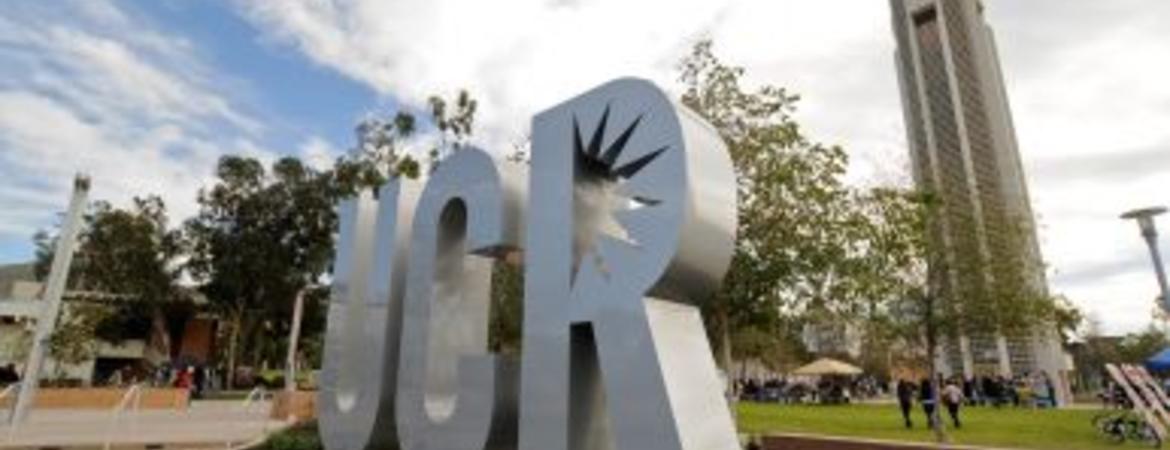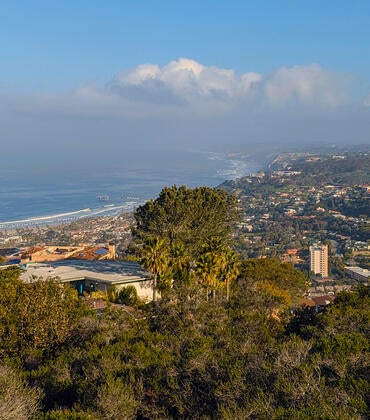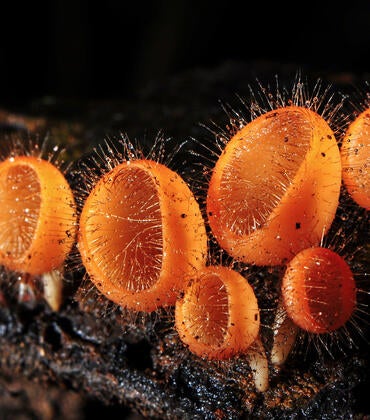

A University of California, Riverside scholar has been awarded a Fulbright grant to conduct research at the University of Sao Paulo in Brazil for 2018-19.
Valentine Vullev, a professor of bioengineering whose research areas include molecular photonics and biophotonics, will continue his research into bioinspired charge-transfer systems — particularly, bioinspired molecular electrets. He will be working in collaboration with teams from the University of Sao Paulo, Latin America’s highest-ranked university, according to U.S. News & World Report.
Vullev received his bachelor’s degree from Keene State College and Ph.D. from Boston University, studying photochemistry and biophysics. As a postdoctoral fellow at Harvard University, he explored the fields of surface chemistry and microfluidics.
At the heart of Vullev’s current research into charge transfer is the need for developing sustainable energy sources.
“Energy is the essence for the sustainability of the human civilization,” he said in a video created for The Journal of Physical Chemistry Letters. “The anthropogenic environmental changes, however, place a premium demand for moving away from fossil fuels as a principal energy source.”
With concerns over climate change and humanity’s impact on the environment ever increasing, Vullev has looked to solar energy as a more sustainable and benign energy source.
“Among all carbon-free energy sources, solar by far has the incomparable potential for sustaining our current and projected energy needs,” he said.
In particular, Vullev has homed in on a natural solar energy system that has been successful for millennia — photosynthesis. His research looks to photosynthesis as a paradigm for solar energy conversion and employs bioinspired approaches to basic science and applied engineering.
Bioinspired approaches involve taking ideas originating from living systems and applying them in new, unprecedented ways not seen in nature. These approaches can readily surpass natural systems and lead to countless unexplored possibilities for energy and other applications. One such bioinspired design invented by Vullev — and the focus of his Fulbright grant research — are bioinspired molecular electrets.
Bioinspired molecular electrets, of which Vullev was also first to coin the term, have ordered electric dipole moments effective for charge transfer — the key process in solar cells and other energy conversion devices. With these bioinspired molecular electrets, Vullev has found a way to transfer electrons and positive charges, the process of which has proven promising for modulating the directionality of charge transfer.
“The importance of charge transfer cannot be overstated,” he said. “Charge transfer is what makes most vital processes in living organisms, such as cellular respiration and photosynthesis, possible. Charge transfer is the key process in solar cells and other energy conversion devices.”
Vullev’s continued research into molecular electrets ultimately aims to improve the efficiency of energy-conversion methods.
The Fulbright grant will bring Vullev’s expertise in molecular electrets and charge transfer to Brazil, as well as allow him to work on expanding the field of charge-transfer electrets to cell biology and developing a new means for optical control of cell functions.
The Fulbright Program is the leading international education exchange program sponsored by the U.S. government and is designed to increase mutual understanding between the people of the United States and people of other countries. The program, which awards approximately 8,000 new grants annually, was established in 1946 under legislation by Arkansas Sen. J. William Fulbright and is sponsored by the U.S. Department of State’s Bureau of Educational and Cultural Affairs. It operates in more than 150 countries.



